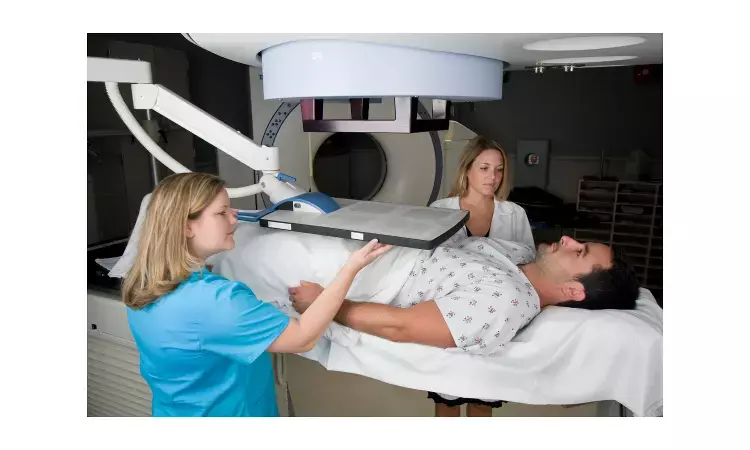- Home
- Medical news & Guidelines
- Anesthesiology
- Cardiology and CTVS
- Critical Care
- Dentistry
- Dermatology
- Diabetes and Endocrinology
- ENT
- Gastroenterology
- Medicine
- Nephrology
- Neurology
- Obstretics-Gynaecology
- Oncology
- Ophthalmology
- Orthopaedics
- Pediatrics-Neonatology
- Psychiatry
- Pulmonology
- Radiology
- Surgery
- Urology
- Laboratory Medicine
- Diet
- Nursing
- Paramedical
- Physiotherapy
- Health news
- Fact Check
- Bone Health Fact Check
- Brain Health Fact Check
- Cancer Related Fact Check
- Child Care Fact Check
- Dental and oral health fact check
- Diabetes and metabolic health fact check
- Diet and Nutrition Fact Check
- Eye and ENT Care Fact Check
- Fitness fact check
- Gut health fact check
- Heart health fact check
- Kidney health fact check
- Medical education fact check
- Men's health fact check
- Respiratory fact check
- Skin and hair care fact check
- Vaccine and Immunization fact check
- Women's health fact check
- AYUSH
- State News
- Andaman and Nicobar Islands
- Andhra Pradesh
- Arunachal Pradesh
- Assam
- Bihar
- Chandigarh
- Chattisgarh
- Dadra and Nagar Haveli
- Daman and Diu
- Delhi
- Goa
- Gujarat
- Haryana
- Himachal Pradesh
- Jammu & Kashmir
- Jharkhand
- Karnataka
- Kerala
- Ladakh
- Lakshadweep
- Madhya Pradesh
- Maharashtra
- Manipur
- Meghalaya
- Mizoram
- Nagaland
- Odisha
- Puducherry
- Punjab
- Rajasthan
- Sikkim
- Tamil Nadu
- Telangana
- Tripura
- Uttar Pradesh
- Uttrakhand
- West Bengal
- Medical Education
- Industry
5-alpha reductase inhibitors may not significantly impact prostate cancer detection on MRI: Study

Cleveland, Ohio: A retrospective study by Andrei S. Purysko and the team revealed that long-term exposure to 5-alpha-reductase inhibitors (5-ARIs) may not impair significant cancer detection on MRI. However, it may affect the ability of apparent diffusion coefficient (ADC) metrics to distinguish between lesions that harbor significant cancer and those that harbor insignificant cancer or benign tissue. The findings of the study are published in The Journal of Urology.
5-alpha-reductase inhibitors (5-ARIs) are a group of medicines that block the action of 5-alpha-reductase, the enzyme that converts testosterone into dihydrotestosterone. 5-alpha reductase inhibitors (5-ARIs) are one of the standard forms of medication approved by the Food and Drug Administration (FDA) for Benign Prostate Hypertrophy.
Purysko and colleagues aimed to evaluate the influence of 5-ARIs on the performance of MRI for detection of Gleason grade group (GG) ≥2 prostate cancer, and on ADC maps.
The study was a single-center, retrospective study which included men who had MRI for initial detection or active surveillance of prostate cancer. The study group included 59 men who used for 5-ARIs for ≥12 months, and the control group included 59 men who were matched for both MRI indication and biopsy results. DeLong's test was used to compare the area under the receiver operating characteristic curve (AUC) for detection of GG ≥2 cancer between the groups. Wilcoxon rank sum test was used for comparison of lesions apparent diffusion coefficient (ADC) metrics between the groups.
The results of the study were
• MRI accuracy in the study group was found to be (AUC=0.778) which wasn't significantly different compared to the control group (AUC=0.821).
• In the control group, all ADC metrics were lower in lesions with GG ≥2 cancer on biopsy than in those with GG 1 cancer or negative results.
• In the study group, this difference was significant only when the mean ADC of the lesions was normalized by the ADC of urine.
Purysko and team concluded that "Long-term exposure to 5-ARIs does not seem to impair the detection of significant cancer on MRI but may affect the ability of ADC metrics to discriminate between lesions that harbor significant cancer and those that harbor insignificant cancer or benign tissue."
Reference: https://doi.org/10.1097/JU.0000000000001932
Medical Dialogues consists of a team of passionate medical/scientific writers, led by doctors and healthcare researchers. Our team efforts to bring you updated and timely news about the important happenings of the medical and healthcare sector. Our editorial team can be reached at editorial@medicaldialogues.in.
Dr Kamal Kant Kohli-MBBS, DTCD- a chest specialist with more than 30 years of practice and a flair for writing clinical articles, Dr Kamal Kant Kohli joined Medical Dialogues as a Chief Editor of Medical News. Besides writing articles, as an editor, he proofreads and verifies all the medical content published on Medical Dialogues including those coming from journals, studies,medical conferences,guidelines etc. Email: drkohli@medicaldialogues.in. Contact no. 011-43720751


